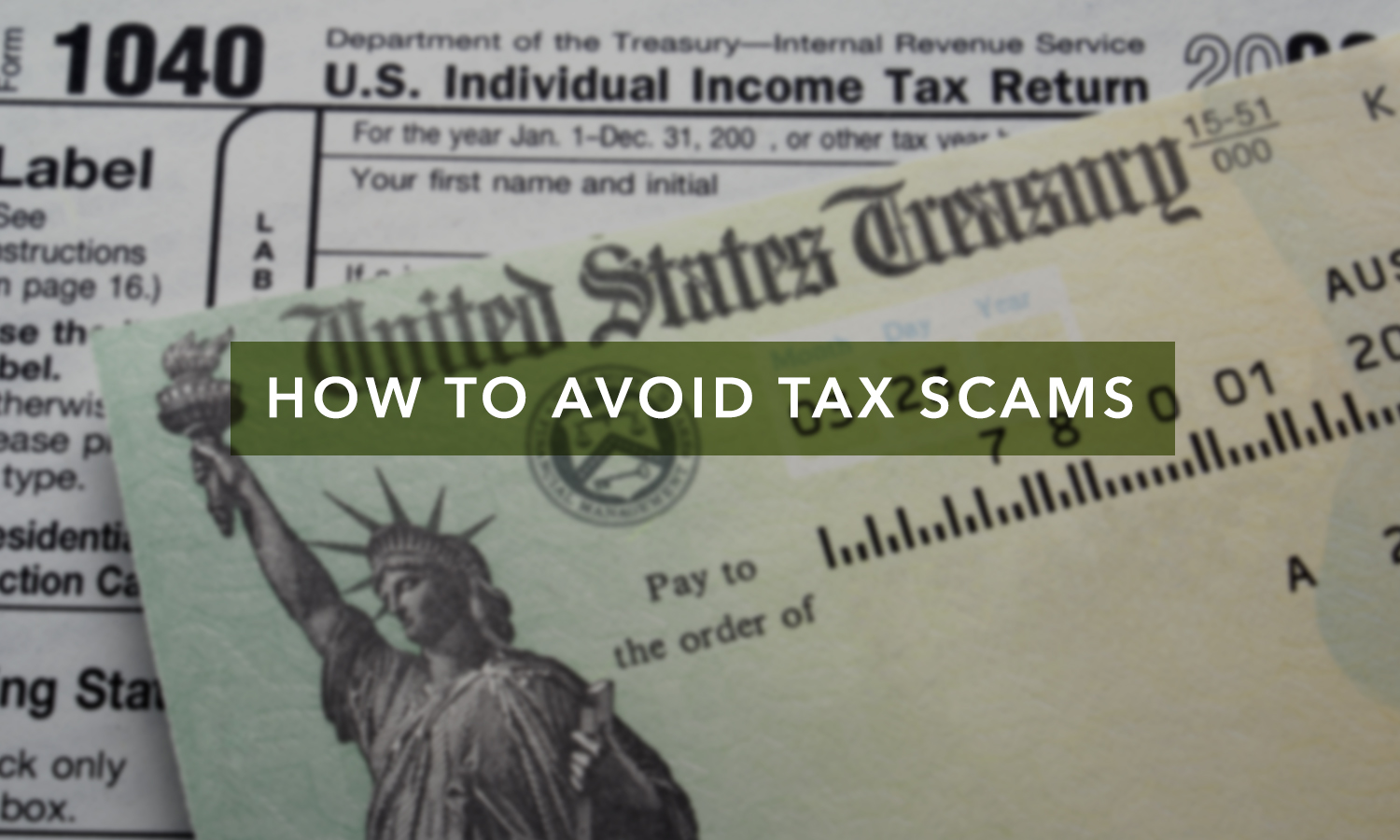Tax season is here, and with that comes many fraudsters trying to trick unsuspecting taxpayers. Fortunately, you can avoid being a victim of tax scams by learning what to look for and taking appropriate action to protect yourself. According to the Internal Revenue Service (IRS), you should watch out for these two common tax scams:
Scam #1: Email Phishing Scams
Email Phishing occurs when a fraudster sends you an email claiming to be from the IRS and states the following:
- You owe money to the IRS and can easily on a linked website. And, just as a way to scare you into using the link, you’re threatened in some way — if you don’t pay, you’ll be arrested, deported, or have your license revoked.
- You can receive your tax refund quickly by clicking on a link to a unique website.
- Your bank or credit card account was compromised when you paid your taxes, but if you click on the link provided, the IRS can resolve the issue quickly.
Unfortunately, the websites provided are phony. They allow fraudsters to ask for personal information, which they then use illegally. Some of these emails may include an attachment with codes that can damage or breach the security on your computer or digital device.
What to do: The IRS will never initiate contact with taxpayers by email to request personal or financial information — the IRS contacts taxpayers through regular or certified U.S. mail. If you receive an email claiming to be from the IRS, you should:
- Never open an attachment.
- Report the email immediately by forwarding it to the IRS at phishing@irs.gov.
Additionally, the IRS will never discuss tax issues with you through text messages or social media. If you receive notification in this way, forward it immediately to phishing@irs.gov.
Scam #2: Phone Scams
An IRS phone scam occurs when a fraudster calls you claiming to be an IRS agent. The person demands payment for taxes over the phone if you provide your bank or credit card account information. The fraudster may also explain you can access your tax refund faster by providing your information over the phone. Remember the following:
- The IRS will never threaten you with deportation, arrest, or some other permanent penalty unless you immediately pay our taxes over the phone.
- The IRS never calls and leaves a pre-recorded message threatening you with law enforcement action if you don’t return the call.
- The IRS never demands you to pay taxes without allowing you to appeal the amount you owe.
- The IRS never requires you to pay taxes using a specific payment method (prepaid debit card).
The IRS may call you if you have a delinquent tax payment; however, the agent will reference a letter (with your case number) mailed to you through the U.S. postal service from the IRS.
What to do: If you owe money on your taxes, report the call immediately to the IRS at 1-800-829-1040 to ensure there are no issues with your tax status. If you don’t owe a tax payment, report the call immediately to the Treasury Inspector General for Tax Administration (TIGTA) at 1-800-366-4484, or www.tigta.gov.
Learn more ways to protect yourself from the latest tax scams by visiting the IRS website. The more you know, the more you can protect yourself this tax season.


